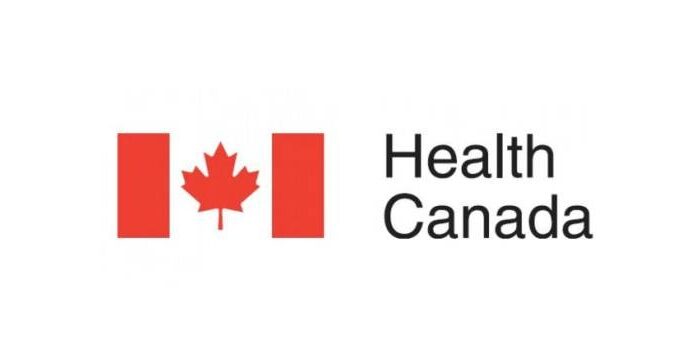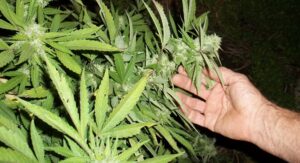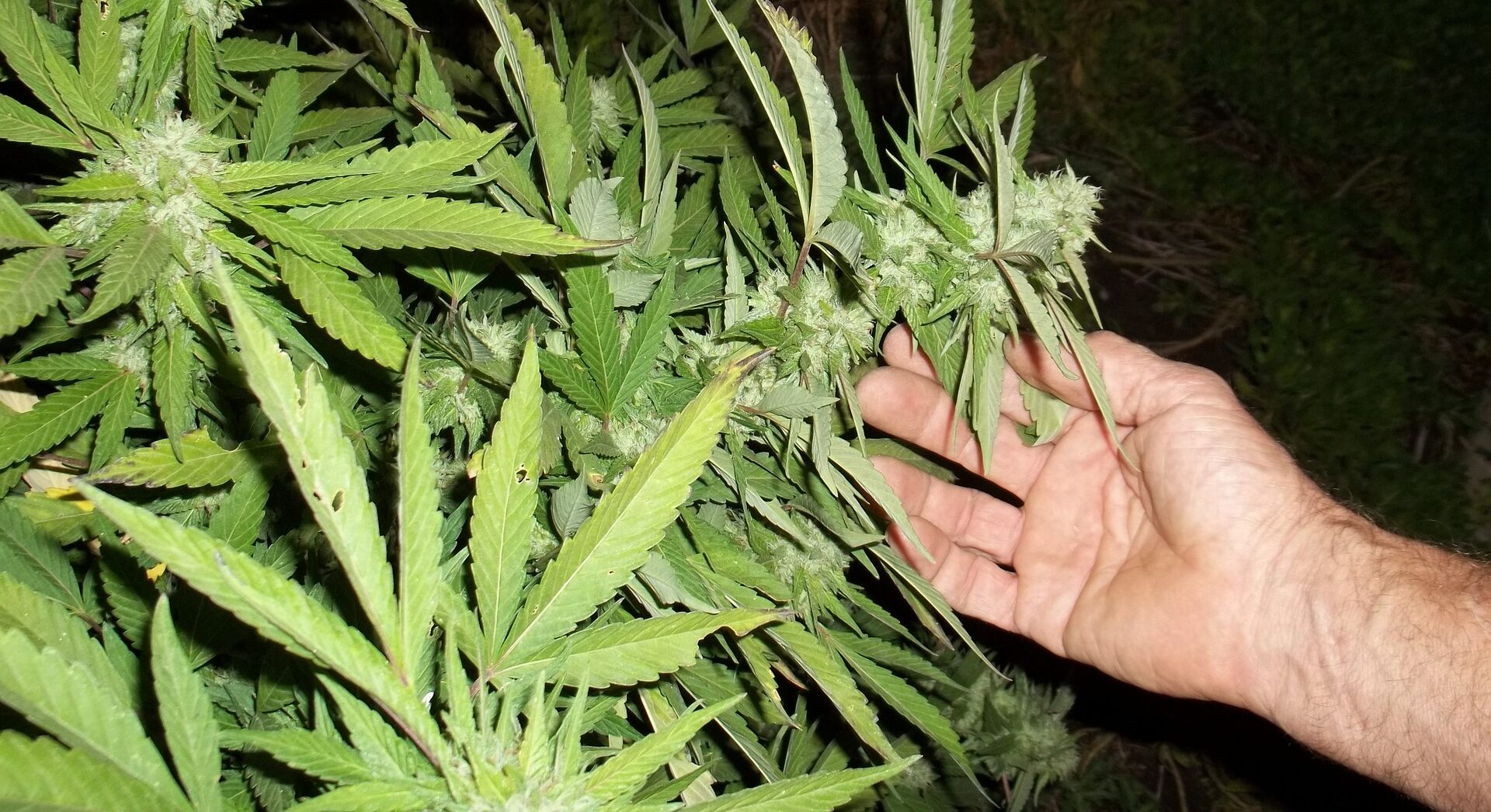Health Canada Revises Certain Cannabis Regulations

For the purposes of streamlining requirements, Health Canada has amended certain regulations concerning cannabis.
Canadian cannabis news site Stratcann published an article on March 12 discussing the revisions.
“The regulation changes focus on five key areas: licensing, production, packaging and labelling, security, and record keeping. The government’s goal with these changes is to address some of the challenges expressed by the industry while maintaining the key public health and safety concerns within the federal Cannabis Act.”
In the new regulations, which were made official in February and took affect last week, production limits for micros increased, and requirements for non-human and non-animal research testing decreased.
Another revision omitted the printed “Consumer Information Document” requirement that in the past had to accompany every shipment of cannabis in Canada.
There were also revisions for hemp producers.
Read a summary revised regulations here: https://www.canada.ca/en/health-canada/services/publications/drugs-health-products/summary-changes-following-streamlining-regulations.html
Read the Stratcann article on the changes here: https://stratcann.com/other/updates-cannabis-rules-regulations-now-public/
Cannabis & GMP/GACP: Part 7 - Options

Welcome to our summer series on cannabis and GMP/GACP. A new article will be published once a week throughout the summer. You can access related articles that have been published so far by clicking the Compliance category on the main News & Events index page: Compliance category
As mentioned in earlier posts, any software used for Good Manufacturing Practice-related activities must be validated in the facility at the time of certification. Even if a software system has been validated in another facility in the past, it will need to be validated in your facility if you are becoming Good Manufacturing Practice-certified.
But it isn’t just the cannabis management system that will need to be validated. Any software used in relation to compliance-related activities or data must be validated at the time of GMP certification.
In addition, every piece of equipment must also be validated for GMP. Since most equipment today relies heavily on software for its operation, all of that software will need to validated along with the equipment.
The process is not only time-consuming but extremely costly. Some organizations have reported spending up to two years with costs into six figures on the GMP certification process.
Is there another option? Yes.
If Canadian LPs wish to sell cannabis in Europe or other GMP regions, there are two options.
a) Become Good Manufacturing Practice certified OR
b) Become Good Agricultural & Collection Practice certified and sell product in bulk to a producer who is GMP certified
There are pros and cons to both of these options.
While GMP certification lets producers sell their products directly to regions where it is required, as noted, the certification process involves validating every piece of equipment and software used in the facility. Plus, the cost for GMP certification is dependent on what products the licensed producer sells.
There is also a significant cost to maintaining a GMP certification including performing third-party vendor validations every two to three years as well as re-validating equipment and software when new releases/firmware updates are installed. These re-validation efforts require regression testing to perform complete process re-validation for all areas related to the specific equipment or software.
GACP certification does not permit producers to sell directly in GMP regions but does allow them to sell to GMP-certified producers. These certified producers can be in Canada or in the destination region.
Since GACP does not require third-party vendor validation nor equipment and software validation, time and costs to achieve certification are significantly reduced.
Whichever route you choose to take, if you use a cannabis management system in your facility, you should ensure that the software offers as many compliance-related features as possible.
If a software vendor claims their system is GMP-certified, it is not true. No software can become GMP-certified. A system can be validated in the GMP-certification process for a specific facility, but there is no GMP certification for software nor for equipment.
A software system having been validated in another facility that achieved GMP certification is an indication that it may meet compliance in your facility. But that is not a guarantee. If you are using software incorrectly or inconsistently, validation may fail.
And remember that all quality systems are heavily dependent on physical processes and practices. Software only supports the operation and supplies the recordkeeping and auditing. No software can make your facility GMP-compliant on its own.
Links
Following are links to the various standards that could be applied to cannabis.
Good Agricultural & Collection Practices/GACP (also called GAP): International; Israel
https://www.who.int/publications/i/item/9241546271
https://www.gov.il/en/departments/topics/medical-cannabis/govil-landing-page
Good Production Practices GPP: Canada
Good Manufacturing Practices/GMP: International; European Union; Australia
Current Good Production Practices/cGMP: USA
Good Distribution Practices/GDP: United Kingdom
https://www.gov.uk/guidance/good-manufacturing-practice-and-good-distribution-practice
Cannabis & GMP/GACP: Part 6 - Software Validation

Welcome to our summer series on cannabis and GMP/GACP. A new article will be published once a week throughout the summer. You can access related articles that have been published so far by clicking the Compliance category on the main News & Events index page: Compliance category
Validated Software vs GMP-ready Software
As noted, there is no certification for software. Software can only be validated.
For facilities seeking GMP certification, there are two types of software validation: system validation and process validation.
System validation involves a review of the software against the criteria for computerized systems in the quality system. The vendor must be qualified, along with their internal processes, to ensure that the software has been developed in a way that meets good practices for privacy, security, data integrity and more.
Process validation involves running tests of critical operations to ensure that the software performs as specified and that the results meet the guidelines.
These validations happen during the facility certification process.
Most computerized system vendors offer validation support to help their clients through the certification process. This support may include test scripts and documentation.
But be aware that just because software has been validated does not mean that it covers all GMP requirements. In fact, software that has been validated could have only one GMP-related feature, but that one feature was reviewed during the certification of a facility.
What validation does is ensure that the software meets the criteria for computerized systems and that any features that manage GMP-related processes are compliant.
Also be aware that any vendor can claim that their software is GMP-ready, whether it has been validated or not. GMP-readiness implies that the software meets the criteria for computerized systems and that features in the software are compliant. But only on-site validation against the facility’s processes will determine if it meets compliance for certification.
And GMP-readiness, or even validation, is not an indication of how many GMP-related features one software has in comparison with another. Also know that GMP certification of a cannabis facility is not dependent on the software in use being pre-validated or claiming GMP-readiness. The proof is in the review of the software in relation to the processes in the facility.
Essentially, one software application should not be assumed better for GMP than any other software based on a claim of being GMP-ready or validated. The proof is in the functionality that each software system has in relation to GMP. And if a software vendor claims their system is GMP-certified or GACP-certified, know that this is untrue. Software cannot be certified, neither can any piece of equipment. Only a facility can be certified.
Validation Process
During GMP certification, all software applications that have GMP implications will need to be validated during certification.
The vendor will be scrutinized to ensure that they are a legitimate business and that they follow accepted practices in their software development. This typically requires a review of business licensing and standard operating procedures.
The software will also be tested against specific workflows to ensure that it functions as designed and as required to meet compliance. This typically involves utilizing product instructions and test scripts.
In the certification process, only GMP-related activities are validated. Activities outside the scope of GMP are not validated. For example, since growing and harvesting are not covered by GMP, the facility would not validate those during the certification process. An LP selling dried cannabis would start the validation process at the drying stage and move on through testing, packaging, labelling, and distribution.
Plus, activities outside the scope of the facility are also not validated. If a facility is not manufacturing edibles, the GMP section that covers that type of product would not be included in the certification process.
Each certification process is unique to the facility and to the products being manufactured.
Links
Following are links to the various standards that could be applied to cannabis.
Good Agricultural & Collection Practices/GACP (also called GAP): International; Israel
https://www.who.int/publications/i/item/9241546271
https://www.gov.il/en/departments/topics/medical-cannabis/govil-landing-page
Good Production Practices GPP: Canada
Good Manufacturing Practices/GMP: International; European Union; Australia
Current Good Production Practices/cGMP: USA
Good Distribution Practices/GDP: United Kingdom
https://www.gov.uk/guidance/good-manufacturing-practice-and-good-distribution-practice
Cannabis & GMP/GACP: Part 5 - Cannabis Management Systems

Welcome to our summer series on cannabis and GMP/GACP. A new article will be published once a week throughout the summer. You can access related articles that have been published so far by clicking the Compliance category on the main News & Events index page: Compliance category
CMS Functionality
In terms of government regulations and industry standards, cannabis management software is an electronic records management system. Most business management software programs are essentially electronic records management systems regardless of what industry they are use in.
Since a computer record is only as secure as the system that holds it, the organization must therefore make certain that both the hardware and software comprising that system is secure. And since the hardware and software are only as secure as the facility they are located in, this also means securing the physical location of any servers or back-up copies of data and so on. If the hardware and software are stored elsewhere, such as in the case of cloud-based software, that location should be confirmed secure. As well, access to the system within the cannabis facility must also be secure. No computer system can meet such requirements—only an internal security policy and associated procedures can.
While we can’t stress enough that the physical practices are critical to meeting quality standards such as Good Manufacturing Practice (GMP) and Good Agricultural & Collection Practice (GACP), software can play a significant role by recording the activities of concern. A cannabis management system should meet the requirements for a computerized system, but the software should also offer all the functionality required for quality management and recordkeeping.
Following are the features to look for in a cannabis management system that will be used in a facility seeking GMP-certification.
Computerized System Requirements
- Maximum security and privacy of the hardware and software with a firewall and monitored intrusion system
- Encryption and security of sensitive data by both physical and electronic means against damage
- Stored data that is checked for accessibility, readability and accuracy with access ensured throughout the retention period
Controlled access to data based on worker roles and security profiles - Electronic signatures and multi-factor authentication to ensure only authorized employees access data and complete sensitive tasks
Good Production Practice
- A built-in quality management system with support for clearly defined standard operating procedures (SOPs)
- Recording of all production workflows carried out in the facility, which demonstrate that all the steps required by the defined procedures and instructions were in fact taken
- Sample management and recording of quality assurance testing with analysis results, including scanned copies of supporting documentation (e.g., certificate of analysis) if necessary
- Recording that the quantity and quality of the product was as expected
- Recording that no batch of product is released for sale or supply prior to certification by a Qualified Person that it is in accordance with the requirements of the relevant authorisations
- Recording of distribution that enables the complete history of a batch to be traced and retained in a comprehensible and accessible form
Deviations, Complaints & Recalls
- Recording of any significant deviations and investigations with the objective of determining the root cause and appropriate corrective and preventive action implemented
- Tracking of all pertinent information related to complaints, adverse reactions and severe adverse reactions
- A system for recording that complaints about products are examined, the causes of quality defects investigated and appropriate measures taken in respect of the defective products and to prevent reoccurrence
- An automated system to facilitate a recall of any batch of product from sale or supply
Waste & Destruction
- Tracking of waste material including where the waste was collected, by whom, the source of the waste (e.g., plant, batch, room, etc.), the weight, volume or count of the material and the current location of the waste item
- Recoding of destruction events including date, location, method, the authorized/qualified witnesses
Auditing & Reporting
- Complete audit trails for every action
- Product tracing to the lot or batch and ultimately back to the original genetic material
- Recording of the results of inspection and that testing of materials, intermediate, bulk, and finished products is formally assessed against specification
- Tracking of every interaction/communication with authorities, suppliers & clients
- Full compliance reporting, automated if possible to save time and facilitate audit success
- Controls to ensure the integrity of records throughout the retention period, with it clearly defined which record is related to each manufacturing activity and where this record is located
If your CMS offers all the above, not only will it help your business, but it will help make all compliance easier including GMP-certification.
Links
Following are links to the various standards that could be applied to cannabis.
Good Agricultural & Collection Practices/GACP (also called GAP): International; Israel
https://www.who.int/publications/i/item/9241546271
https://www.gov.il/en/departments/topics/medical-cannabis/govil-landing-page
Good Production Practices GPP: Canada
Good Manufacturing Practices/GMP: International; European Union; Australia
Current Good Production Practices/cGMP: USA
Good Distribution Practices/GDP: United Kingdom
https://www.gov.uk/guidance/good-manufacturing-practice-and-good-distribution-practice
Cannabis & GMP/GACP: Part 4 – Software Compliance

Welcome to our summer series on cannabis and GMP/GACP. A new article will be published once a week throughout the summer. You can access related articles that have been published so far by clicking the Compliance category on the main News & Events index page: Compliance category
Software & Quality Systems
Many of the principles in quality systems are dependent on physical practices, such as safety measures, security protocols, training, and carrying out activities in a prescribed and consistent manner.
The role of software in the scope of standards is to deliver the means for managing or tracking those practices and providing recordkeeping for auditing & compliance.
Please be aware that software cannot, on its own, become ‘certified’ in relation to GMP or GACP for that matter. Only a facility can become certified for either quality system. Software, however, must be ‘validated’ against specific practices carried out in the facility for GMP certification. As noted, GACP does not require software validation.
Each facility must validate their compliance-related processes during certification. In the case of GMP, the software and equipment used in the facility must also be validated. In the case of GACP, software and equipment are not validated – only processes.
Regardless of whether validation of equipment and software is required, certification is always dependent on more than software. Most of the principles and practices of quality systems are outside the control of any software application.
The Role of Software in Certification
For GMP, any software used for compliance-related activities must be validated in the facility at the time of certification. Even if a system has been validated in another facility in the past, the software will need to be validated in your facility.
Since quality systems cover so many aspects of the operation, it is possible that more than one software application may be used in a facility for compliance-related activities. The facility may have a cannabis management system to track production, but it may also have a separate quality management system or a laboratory management system. There may be a learning management system used to track worker qualifications plus a financial system that manages supplier-related data.
As all of these systems have compliance implications, each one, as well as each piece of related equipment, would need to be validated during certification, not just the cannabis management system.
In fact, a cannabis management system is not even mandatory for a cannabis facility seeking certification. A facility could be using several software systems that together manage all the various aspects of operations, none of which is a cannabis management system, and still become certified. Certification would involve having each application validated against the processes it covers.
However, a cannabis management system should make certification of any quality system easier, especially if it offers comprehensive tracking of all compliance-related processes as well as full auditing and reporting. Compliance functionality is one of the main selling points of cannabis management systems.
Links
Following are links to the various standards that could be applied to cannabis.
Good Agricultural & Collection Practices/GACP (also called GAP): International; Israel
https://www.who.int/publications/i/item/9241546271
https://www.gov.il/en/departments/topics/medical-cannabis/govil-landing-page
Good Production Practices GPP: Canada
Good Manufacturing Practices/GMP: International; European Union; Australia
Current Good Production Practices/cGMP: USA
Good Distribution Practices/GDP: United Kingdom
https://www.gov.uk/guidance/good-manufacturing-practice-and-good-distribution-practice
Cannabis & GMP/GACP: Part 3 - Cannabis & Standards

Welcome to our summer series on cannabis and GMP/GACP. A new article will be published once a week throughout the summer. You can access related articles that have been published so far by clicking the Compliance category on the main News & Events index page: Compliance category
Canadian Producers & Standards
The Canadian cannabis industry is regulated by Health Canada, who have supplied both recordkeeping standards and good production practice standards. Licensed producers (LPs) must describe how they will meet those standards at the time of licensing.
When Health Canada was developing regulations for cannabis, they realized that existing standards did not cover the specific aspects of cannabis production and distribution. As a result, the government created a new quality system designed explicitly for cannabis in Canada, called Good Production Practice (GPP).
GPP was based on the existing standards outlined in Good Manufacturing Practice (GMP) and Good Agricultural and Collection Practice (GACP) – combining portions of both.
But when other governments were considering cannabis regulations, they chose not to create a new standard. The European Union, for example, chose GMP for cannabis. Australia did as well. But Israel chose GACP for cannabis.
Canadian companies looking to export will need to meet the standards for the specific region even thought they already meet GPP.
As a result, they should be knowledgeable of all three of the main quality systems that are applied to cannabis.
- Good Production Practices (GPP) designed for cannabis in Canada
- Good Agricultural and Collection Practices (GACP) designed for agricultural products in various regions
- Good Manufacturing Practices designed for pharmaceutical & herbal medicines in various regions (Current GMP or cGMP in the USA)
GMP Requirements
GMP has been the leading standard for pharmaceuticals for decades and is now the leading standard for cannabis outside of Canada. GMP has the following basic principles.
1. Clearly defined processes (standard operating procedures or SOPs)
2. Proper documentation including instructions for all equipment
3. Premises that are adequate for the operations
4. Equipment that is suitable for the activities carried out
5. Appropriately trained & qualified personnel
6. Standardized manufacturing processes
7. Verified sampling & testing
8. Correct materials including packaging & labelling
9. Safe storage & transportation
10. A satisfactory complaint and re-call system
11. Validation of all critical steps
12. A quality management system to oversee all practices
GACP Requirements
Good Agricultural & Collection Practices is a recognized standard around the world for cultivating agricultural products for human consumption. GACP has the following basic principles.
1. Formal Standard Operating Procedures (SOPs)
2. Proper documentation
3. Premises that are adequate with emphasis on cleanliness, good ventilation & protection for the product
4. Equipment that is suitable, regularly maintained and cleaned to avoid cross-contamination
5. Qualified personnel who have hygiene, botanical & quality control training
6. Standardized cultivation practices & inputs that guarantee consistency & high quality
7. Verified sampling & testing
8. Appropriate processing & packaging
9. Safe storage & distribution
10. Trustworthiness of seeds & propagation materials
11. Risk-free collection & harvesting
12. Reliable batch identification & traceability, which is mandatory to guarantee lot homogeneity
GMP vs GACP
As you can see by comparing the two lists above, GMP and GACP share several basic principles.
The differences between them are that GMP begins after the production of raw materials. GACP covers propagation, cultivation and harvesting plus packaging and storage but not processing. GACP also does not account for drug or therapeutic properties, which GMP does.
In addition, GACP does not require a formal quality management system, which is mandatory for GMP. GACP also does not require validation of software and equipment, also mandatory for GMP.
For a complete list of the requirements of each quality system, please refer to the websites for each standard.
When you read the detailed requirements for GMP and GACP, you will find that there is overlap. In fact, many of their requirements are also required by GPP. Therefore, Canadian LPs are already meeting some of the requirements of both GMP and GACP.
Links
Following are links to the various standards that could be applied to cannabis.
Good Agricultural & Collection Practices/GACP (also called GAP): International; Israel
https://www.who.int/publications/i/item/9241546271
https://www.gov.il/en/departments/topics/medical-cannabis/govil-landing-page
Good Production Practices GPP: Canada
Good Manufacturing Practices/GMP: International; European Union; Australia
Current Good Production Practices/cGMP: USA
Good Distribution Practices/GDP: United Kingdom
https://www.gov.uk/guidance/good-manufacturing-practice-and-good-distribution-practice
Cannabis & GMP/GACP: Part 2 - Quality Systems

Welcome to our summer series on cannabis and GMP/GACP. A new article will be published once a week throughout the summer. You can access related articles that have been published so far by clicking the Compliance category on the main News & Events index page: Compliance category
Cannabis Around the World
The legality of cannabis varies from around the world. In some regions, cannabis is licensed for both medical and recreational use. In others, cannabis is licensed for medical use only. And in some, cannabis remains a prohibited substance for any use.
At the time of writing this, 50 nations had legalized cannabis nationally or regionally for medical or recreational use. Each individual region sets the standards for cannabis production, manufacturing and distribution.
The types of standards that are applied to cannabis are collectively known as ‘quality systems.’ Most quality systems are similar to each other, using accepted good practices. What differs are the processes they cover, which are dependent on the products being manufactured.
In many cases, the standards applied to cannabis are based on pre-existing quality systems designed for other types of manufacturing or production. Since the plants are grown in an agricultural setting, agricultural standards, such a Good Agricultural & Collection Practice (GACP), can be applied. As cannabis has drug qualities and therapeutic value, pharmaceutical standards, such as Good Manufacturing Practice (GMP), can be applied. With testing for THC and other values, clinical or laboratory standards can be applied. As well, general business standards, such as those from the International Organization for Standardization (ISO), can also be applied.
New standards, however, can be created at any time. When Canada was legalizing cannabis, Health Canada created a new quality system designed specifically for cannabis called Good Production Practice (GPP).
When other regions were considering cannabis, however, most decided not to create a new standard as Canada did and chose GMP or GACP instead.
Each of these quality systems has the same type of framework. Rather than rigid rules, most standards provide guidelines for carrying out operations. The standards are not designed to limit how a business operates. Instead, they are intended to guide the facility toward good practices. The ‘how’ of complying is left up to the individual organization. Each facility is allowed to determine the best way to meet the criteria. The final result is what is important.
Quality Standards Benefits
Besides meeting compliance regulations, adhering to a quality system offers many benefits, including increased productivity, improved employee safety, and enhanced customer satisfaction. But one of the main purposes of standards in relation to cannabis is to minimize the following risks.
- Contamination of products that could make them unsafe.
- Inaccurate labelling that could lead to accidental misuse.
- Insufficient active ingredients that could affect efficacy.
- Excess active ingredients that could be hazardous.
These risks are the reason cannabis operations must comply with a quality system, regardless of where they are in the world. There may be one governing body with one set of standards clearly laid out. In other cases, there may be several sets of standards that focus on different areas of operation. When setting up a facility, each cannabis business must identify which standards will apply and how to meet them.
Links
Following are links to the various standards that could be applied to cannabis.
Good Agricultural & Collection Practices/GACP (also called GAP): International; Israel
https://www.who.int/publications/i/item/9241546271
https://www.gov.il/en/departments/topics/medical-cannabis/govil-landing-page
Good Production Practices GPP: Canada
Good Manufacturing Practices/GMP: International; European Union; Australia
Current Good Production Practices/cGMP: USA
Good Distribution Practices/GDP: United Kingdom
https://www.gov.uk/guidance/good-manufacturing-practice-and-good-distribution-practice
Why you need seed-to-sale software for your cannabis business
 Introduction
Introduction
Seed-to-sale software tracks plant production from reproduction through growth, harvesting, drying, packaging, sales and distribution. Health Canada mandates record keeping for every part of the process, and Canadian seed-to-sale software applications focus on compliance built on Health Canada’s regulations.
Record keeping is an essential part of Health Canada’s compliance regulations. From the advent of legal medical marijuana in Canada, legal producers of cannabis have been required to track every seed, rooted plant, gram of waste material, final dried product, as well as interactions with customers. Due to the sheer volume of information, an electronic record-keeping system is the only practical way to manage the process. The software industry has responded to this need by creating seed-to-sale management software systems designed to help producers track their operations and report to Health Canada to meet compliance.
As a Health Canada applicant, you must specify the name of the software system you plan to use for record keeping and provide a summary of how the software program meets Health Canada’s requirements. As a result, you will need to make at least preliminary decisions into seed-to-sale management software early on in your application process.
This might seem like one more challenge along your path to becoming a licensed producer, but in reality, seed-to-sale software is designed to help you be successful.
Seed-to-sale software platforms should provide the electronic record keeping required to not only for you to meet compliance, but also to help you be successful in your business. From greenhouse to warehouse to customer, your software system should help you at every stage of your operation. Functionality for genetics tracking, inventory management, quality control, shipping & receiving, point-of-sale ecommerce, compliance auditing & reporting, and customer relationship management can provide you with full business administration.
Licensing
To do business in the cannabis industry in Canada, you must meet Canada’s licensing requirements. Currently there are several types of licenses for those wishing to carry out cannabis-related business in Canada.
- Standard Cultivation
- Micro-cultivation
- Nursery
- Standard Processing
- Micro-processing
- Sale
- Analytical Testing
- Research
Regardless of which class of license you get, you will be responsible for complying with all the regulations that apply from the various levels of government.
The Laws
The Cannabis Act
Formerly called the ACMPR, this act covers all aspects of cannabis in Canada from growing through processing to selling and more. It is the responsibility of the licensee/applicant to understand and meet all the requirements that apply to their business.
Other Federal Acts and Regulations
As a licensee or applicant, you are responsible for complying with requirements of other Canadian acts and regulations such as the Food and Drugs Act (FDA), the Pest Control Products Act, the Fertilizer Act, among others.
The Canada Revenue Agency
You’ll also need to meet requirements of the Canada Revenue Agency depending on which activities will be conducted with cannabis.
Provincial or Territorial Legislation
As a licensee or applicant, you’ll be responsible for complying with all applicable provincial or territorial laws and regulations (environmental laws, for example).
Municipal By-Laws
As well, you’ll need to deal with municipal by-laws such as zoning and building permits.
How can seed-to-sale software help?
From the advent of legal medical marijuana in Canada, legal producers of cannabis have been required to track every seed, plant, gram of waste material, final product, and more. Due to the sheer volume of information, an electronic record-keeping system is the only practical way to manage the process.
The software industry has responded to this need by creating seed-to-sale management software designed to help businesses meet compliance. Seed-to-sale software tracks growth, harvesting, processing, packaging, sales and distribution.
And some seed-to-sale software systems go beyond compliance to help businesses cultivate success with features and functionality to help fine-tune propagation, growth cycles, harvesting, production, derivatives, inventory, staffing, and product sales. AirMed is one of those. Wherever your business fits in the seed-to-sale supply chain, AirMed can help with both legal compliance and business acumen. For a free demo, call 877-313-2442, email info @ airmed.ca or fill out the form on our contact page.
For information on cannabis licensing in Canada visit: Cannabis Licensing Application Guide
For more information on purchasing seed-to-sale software, fill out a form to download our complete buyer’s guide: Seed-to-sale Software Buyer’s Guide
ACMPR and the licensed cannabis producer

What does ACMPR cover?
For the cannabis industry in Canada, the most critical compliance implications are those covered by the Access to Cannabis for Medical Purposes Regulations. This legislation covers every aspect of marijuana production and sale. Overseen by Health Canada, these regulations must be adhered to at every stage of cannabis business from propagation through to sale. As of August 24, 2016, the Access to Cannabis for Medical Purposes Regulations (ACMPR) replaced the previous Marihuana for Medical Purposes Regulations (MMPR).
ACMPR is designed to provide an immediate solution for Canada to meet legal requirements. But Health Canada is continuously evaluating how a system of medical access to cannabis should function alongside the government’s commitment to legalize, strictly regulate and restrict access to cannabis. As a result, laws and regulations may change.
Currently, the legislation contains four parts.
Part 1 sets out a framework for commercial production by licensed producers responsible for the production and distribution of quality-controlled fresh or dried marijuana or cannabis oil or starting materials (i.e., seeds and plants) in secure and sanitary conditions.
Part 2 sets out provisions for individuals to produce a limited amount of cannabis for their own medical purposes or to designate someone to produce it for them.
Parts 3 and 4 include transitional provisions, consequential amendments to other regulations, and provisions repealing the MMPR.
All those wishing to produce cannabis in Canada must apply to Health Canada to become a licensed producer under the ACMPR legislation, and all licensed producers MUST comply with the ACMPR regulations.
What are the specific ACMPR regulations that affect software and record keeping?
The ACMPR has many regulations that apply to the medical marijuana industry in Canada as a whole. Not all of those have implications for record keeping or to the method (software) used for that record keeping. (For links to the different websites that cover ACMP download our Seed-to-Sale Software Buyer’s Guide.)
How do I meet ACMPR compliance?
To be ACMPR compliant, your organization must have ways of meeting all of the regulations listed above.
Many of the regulations listed above apply to processes, so you’ll need to be utilizing best practices and documented standard operating procedures. You’ll also need to be able to prove to Health Canada that you have used best practices. That’s where seed-to-sale software comes in. Your cannabis business management software should provide you with the means to meet compliance when it comes to record keeping and reporting.
To support you in this process, a viable software vendor will supply you with a document that outlines exactly how the system they provide meets those requirements.
For a free demo to learn how AirMed meets these and other regulations, please email info @ airmed.ca.


